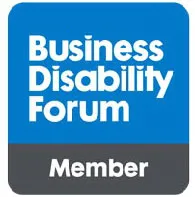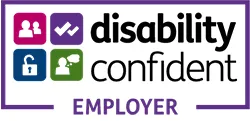CV top tips
Your CV is the first chance you get to sell yourself to a prospective employer, so it needs to highlight why you’re the best person for the job.
You may have the skills, but how will a potential employer know? Here are our top tips for ensuring your CV showcases your abilities.
Length
Ideally, your CV should be no longer than two sides of A4, so keep it relevant and to the point.
Any personal information
Be sure to include your contact details so that the recruiter can contact you.
You don’t need to include a photo, your age, date of birth or your marital/dependant status. None of this is relevant to a role.
Personal statement
Your CV personal statement should be tailored to the role you’re applying for but avoid buzzwords – you don’t want to sound like everyone else. The hiring manager or recruiter may look at hundreds of CVs a week, so the top third of the front page is key and should urge them to keep reading.
Key skills
List your key skills and relevant qualifications; if needed use columns so this section doesn’t take up too much room.
Employment history
This is a chance to outline your experience and should be listed in reverse chronological order. This is because your most recent role is likely to be the most relevant. Keep the format simple and consistent across all listed roles. Include your job title, employer, the dates of employment and relevant key responsibilities, skills and achievements.
Looking for your first role
Recently graduated or completed a professional qualification and ready to get your first role? Then your CV is your chance to sell any formal and informal experience you may have picked up during your studies.
List these experiences and say how they’ll help you in the potential role.
Career change
If you’re looking at a career change and are happy with a step back or sidewards, be sure to make this clear on your CV.
Layout
There are some simple changes you can make to a CV that will make a big difference.
Good formatting is important; you want to make the contents of your CV easy to read and digest. Once you’ve got the hiring manager’s attention you then want to use your personal statement to show them why you’re the one to take forward in the application process.
Interview top tips
A job interview is an opportunity for us to find out a bit more about you and how your skills and experience could help you succeed in the role you’re interviewing for. But it’s just as important that you take this opportunity to find out about us and make sure the role you’re applying for is right for you.
Whether you’re taking part in a video call, face-to-face interview or having your first stage interview over the phone, here are a few things to consider as you prepare.
Who are we?
Try and find out as much as possible about The IET ahead of your interview. Look at our website and social media to find out what we do, and in particular anything that’s relevant to the role you’re applying for. Good research gives a positive first impression.
Who are you?
Don’t forget to re-read your own CV and review your key achievements. Prepare some examples of how your experience is relevant to the role you’re interviewing for.
Understand the role
Familiarise yourself with the role description; practice explaining the overview and purpose of the role in your own words.
Present yourself well
Pick something smart and appropriate to wear to the interview, but make sure it will also help you feel comfortable and confident.
Any questions?
Prepare some questions to ask the panel – you need to get to know us as well after all! This part of the interview isn’t just a bolt-on; hiring managers like to see that you have engaged with the process, the role and the organisation. Good questions will also leave a positive final impression.
Be on time
If you’re on the phone or preparing for a video interview, make sure you’re in a suitable location with no distractions and are ready to take or join the call on time.
For a face-to-face interview, plan your journey beforehand to ensure you arrive a few minutes early and at the right destination. Allow for possible travel delays and follow any guidance provided on how to find us.
During the interview
Remain engaged and don’t forget to smile, it shines through whether you’re on the phone or in-person.
If face-to-face or over the video, use non-verbal cues such as nodding to show that you’re actively listening to the interviewer – check your body language. If you’re on the phone, talk clearly and make an extra effort to sound enthusiastic and engaged. Listen and respond when given the opportunity.
The salary question
Have a think about your salary expectations within the advertised range. If asked, don’t be afraid to say what your ideal salary would be.
Don’t panic!
Once your prep is done, all that’s left is to be yourself.





